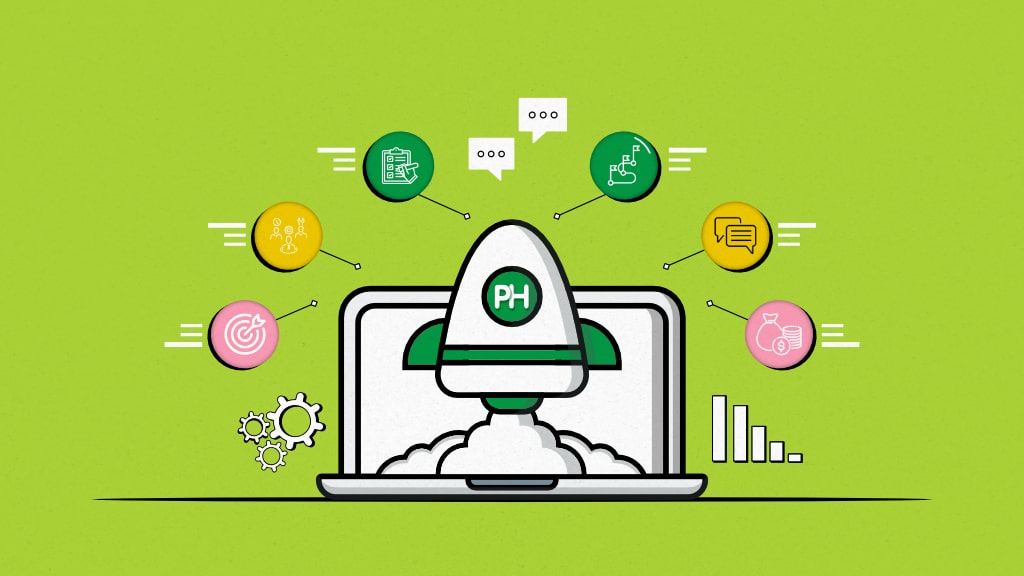Jay runs an early stage startup. He comes across a fair share of thrills, with busy schedules filled with endless management tasks. There are too many things he has to take care of — finances, email threads, bugs to fix, conversations with clients, and more. This is where a project management comes into picture for an entrepreneur. Online project management for startup companies plays a huge role. It is something every startup needs to reach success.
Startups are fast-growing businesses that aim to meet the demands of the marketplace by developing innovative products, services, or platforms. If you’re a budding entrepreneur like Jay or have an idea for running a startup, here is a quick guide for you to start and grow.
Why a Startup Needs Project Management?

Many entrepreneurs undervalue the power of project management for their startup. But it is true that there is no room for error with project management being in the right place. Sure, your startup will have to take many risks like planning, delivering value to clients, taking care of budgets, execution of a project, and many others. However, a project manager who takes care of project management will make sure that business is more efficient during its early stages.
Did you know that ninety seven percent of those asked about how important is project management to productivity consider that it is crucial for business success? Remember it’s never too early for your business to engage in project management. Be it at any stage, you need a project management system.
At times, finding the right method for project management for startups can be a hard nut to crack for your business. You need to carefully think what works well for your business and what not. Maybe for your competitor, the traditional waterfall method is the right fit, but your business demands Agile methods. So, pick the right project management methodology for success.
“Manage your tasks, teams, and clients effortlessly from one place.” Start using ProofHub!
How to Pick the Right Project Management Methodology

There is no right or wrong in project management, it’s all what your needs are. So start by understanding your needs.
- How is your business structured?
- What is the size of your organization?
- What are your goals?
- How complex is your project?
- What do you expect from final deliverables?
- Do your clients/customers prefer a particular methodology?
Taking care of your needs, choosing the right methodology is a vital step in your project journey. After you’ve picked the right method, let’s look at the project management tips and tricks for startup companies that can help turn your startup into a successful business.
Turning Your Startup into Successful Business
Success is not a random act. It doesn’t just happen. It is something that happens because of you.
Startup Project Management Tips for Entrepreneurs

These are the steps that entrepreneurs can take to start building your empire.
1. Set realistic goals

“The victory of success is half won when one gains the habit of setting goals and achieving them. Even the most tedious chore will become endurable as you parade through each day convinced that every task, no matter how menial or boring, brings you closer to fulfilling your dreams.” – Og Mandino
The point is every entrepreneur should not just set a goal but set good goals. If your goals are realistic, setting and achieving them will give you a sense of happiness and well-being. Start with laying a strong foundation.
- Identify your clients
- Develop a solid project plan
- Be proactive and spontaneous
- Ask yourself these questions:
- What is the most basic purpose of my long-term goal?
- What actions do I need to take for long-term goals?
- How to build upon the actions?
Wherever you want to take your life – set goals that you’ll realistically achieve, more important – pick goals you want to achieve.
2. Transform Setbacks into Success

As an entrepreneur, your life is what you make it. Many of you will be aware of the flowery life as an entrepreneur, but what is following the path that you ain’t be told are the setbacks. If you encounter inadequate preparing for your project, project setback will be a common expectation. Complaints from stakeholders, heated conversations in the team, missed deadlines or budget issues will make it pretty tough to run the project smoothly. It’s on you how you anticipate the setback and turn it into an opportunity for growth. How you make of the challenges that come your way!
3. Put Yourself First (Self-evaluation)

In your entrepreneurial journey, every now and then, you’ll need to take time to review where you are and where you are going. Why do you want to start a business? For extra money? For more freedom? Because you’re passionate? It’s your dream? Get an answer for yourself. For your one answer, get yourself ready for another question like:
- What skills do you have?
- Are you one responsible person?
- Where does your passion lie?
- Do you have the energy to work on weekends?
- How much can you afford to spend?
- Are you clear in your directions?
- What sort of lifestyle do you want to live?
- Are you even ready to be an entrepreneur?
4. Milestone Planning

Milestone signifies a change in development. It can help you communicate what’s happening with your project. A very important part of project plan acts as a signpost through your project. Define the right milestones for your team. Discuss with your team the importance of each milestone to stay focused on the goals. Steps to set successful milestones for the success of your project from the get-go.
- Break the project into a list of deliverables
- Identify project risks
- Set progress reporting
- Highlight important dates
- Have a control over project deliverables
- Clear objectives and requirements
- Consider your stakeholders’ support
- Be ready for the long run
Make sure with time your milestones go on being a bit more ambitious and soon your projects will always be successful.
5. Regularly communicate with your team

You’ll have to have a good understanding of the communication process to communicate with authority. In project management, More effective communication = Better project management is known to everyone. Team communications on daily basis keep requirements under control. You’ll be able to keep your team informed about every step in a project.
A study in Procedia Technology, after examining many project managers found that good communication skills were the cornerstone of project management. Communication is not just about talking and hearing, it is about having an understanding of the complete ins and outs of a project. It’s about being there for everyone, understanding the challenges of the project, being engaged with everyone, and clearly articulating the vision.
“Poorly managed tasks ruining your productivity? Start using ProofHub!”
6. Set scope, budget and time

Do you have an idea of how important the triple constraints is for project management? This is one important part of the project because it keeps track of the project for a startup.
Time is essential to get your product/project into the world. You need to have a system in place where you can set time estimates for each project. Easily compare how much time is spend is spent on a task or project by using a free Gantt chart software that comes with project management tools also.
Scope is important to manage any project. Product/project scope needs to be decided on. It tells about the specific requirements that cannot be missed to complete the project on time and under budget.
Cost budgeting creates a cost baseline. Many businesses fail because of fundings. So, it is necessary to allocate the funds so you do not run out of money. Using project management tools you can have an accurate estimate of your budget by calculating the cost variances.
7. Build a Team That Won’t Sink Your Business

The wrong team is among the top reasons when you look at the research on why startups don’t make it. There is no such thing as a solo entrepreneur. You cannot do it alone. A study by CBInsights shows that 23% of startups fail because of not having a strong team with the necessary skills set.
Here‘s how to hire a super team for your startup:
- Look for relevant experience
- Define your team culture
- Make sure they row in the same direction
- Tell them about customer service
- Get them to buy into your vision
Keep Up with the Latest Project Management Trends
According to a recent report published by the Project Management Institute, “the companies with a well-planned EPMO (Enterprise Project Management Office ) report is successfully able to meet almost 48% more than their initial goals and objectives.”
Project management software is becoming simpler to use and better integrated. It can be difficult to manage projects without project management because of the high workload and stress of working full-time. As the workforce is changing constantly, new productivity and project management tools are putting an emphasis on the experience of startups and entrepreneurs.
Project Management Tools for Startups

Project management tools offer many high-level bucket features. Some of the things you can use a tool for:
- Managing tasks
- Planning
- Keeping files and documents
- Managing inventory
- Resource scheduling
- File-sharing
- Bug reports
- Budgeting and invoicing
With this in mind, here we’ll review some of the recommended best online project management tool that you can use during your startup journey to do away with chaos. With the detailed features, you can have a project management tool comparison to better pick the best one for your business.
1. ProofHub

ProofHub is one of the best project management tools that is a perfect fit for project managers looking for project management for startup companies. It is simple and intuitive with features that make it easy to better collaborate, organize, and deliver projects on time. It also allows integration with Google Drive and Dropbox. You can use free ProofHub Gantt charts software to have a real-time progress check of your projects and keep each individual accountable for the number of hours that a task will take.
ProofHub makes it possible for startups working with remote teams to collaborate effortlessly with their unique features such as – to-do’s, Gantt chart application, file sharing, project templates, timesheets, recurring tasks, proofing, reporting automatic notifications, and document management.
The tool offers both a free and paid version. It supports many languages other than English, namely French, Spanish, Portuguese, Swedish, Norwegian, Polish, Danish, Dutch, Greek, Italian, Russian and German. Sign up now for free trial!
2. nTask
nTask is the smart task management software in the fierce market of software. It was designed to support collaboration, tracking, monitoring, time tracking, Gantt charts, task comments, scheduling meetings, project risk management, and more. nTask supports integration with Google Calendar and Outlook. Mobile applications for Android and iOS devices are also offered.
3. Droptask
Droptask is a simple and fluid way to get things done. With a unique visual interface and real-time collaboration functionality, users can attach an unlimited number of files, set reminders, and make a note of things to do. Used by some of the most influential names across the world, such as Harvard University, Coca-Cola, and Disney. It has a beautiful user-interface that equips you with all you need to plan, manage, and achieve anything. You can keep track of all the daily and monthly tasks you need to do. The app also offers affordable options and flexible deployment.
4. Hitask
Using Hitask, you can quickly and easily set up new projects, share a centralized file library and calendar, and synchronize everything across all devices. With multiple features, this app makes it easy to manage tasks, users can organize tasks by project, and share it with their team members.

